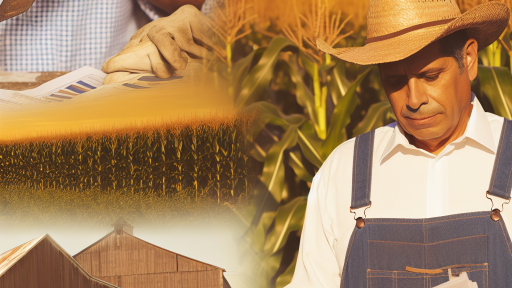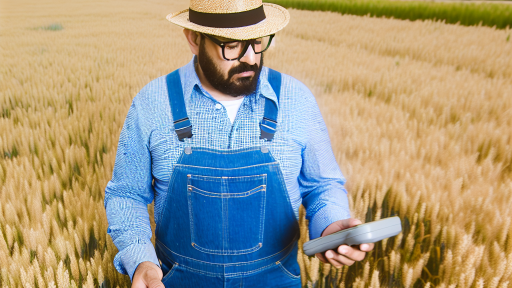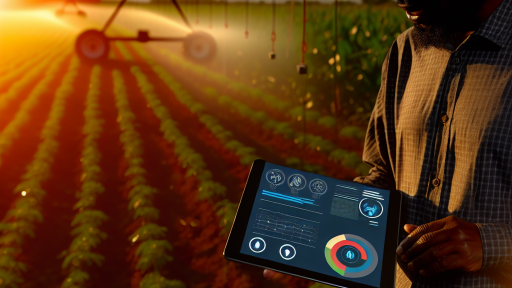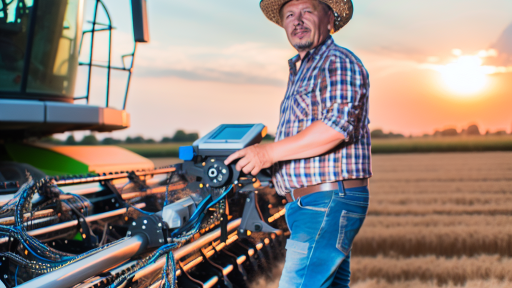Introduction to Blockchain Technology and Its Fundamentals
Blockchain technology represents a revolutionary shift in data management.
It provides a decentralized platform for recording transactions securely.
This technology allows data to be stored across multiple computers.
As a result, it enhances transparency and reduces the risk of data manipulation.
Defining Blockchain
A blockchain is a digital ledger of transactions.
Every transaction undergoes verification before being added to the chain.
This verification process utilizes consensus algorithms to ensure accuracy.
Consequently, once data is recorded, it becomes tamper-resistant.
Key Features of Blockchain
One key feature is decentralization.
Data is not controlled by a single entity, which enhances security.
Another important feature is transparency.
All participants can view the entire transaction history.
This feature builds trust among users.
Types of Blockchain
There are primarily three types of blockchain.
Public blockchains are open to everyone for participation.
Transform Your Agribusiness
Unlock your farm's potential with expert advice tailored to your needs. Get actionable steps that drive real results.
Get StartedPrivate blockchains restrict access to authorized users only.
Hybrid blockchains combine elements of both public and private networks.
How Blockchain Works
Blockchain operates using cryptographic principles.
Each block contains a list of transactions.
Blocks are linked through cryptographic hashes.
These links ensure the integrity of the data across the network.
Importance of Smart Contracts
Smart contracts automate transactions without intermediaries.
They execute automatically when predetermined conditions are met.
This feature increases efficiency and reduces costs.
Applications Beyond Agriculture
While the focus is on agriculture, blockchain applies to various sectors.
Finance, healthcare, and supply chain management benefit significantly.
This widespread adoption showcases blockchain’s versatility.
Future Trends in Blockchain
As technology evolves, blockchain’s potential increases.
Improvements in scalability and speed are underway.
Furthermore, integration with Internet of Things (IoT) devices is anticipated.
This combination could unlock new possibilities in various fields.
Overview of Traditional Agricultural Supply Networks
Traditional agricultural supply networks involve various stakeholders.
These include farmers, processors, distributors, retailers, and consumers.
Each player fulfills a unique role in the supply chain.
However, this system faces numerous challenges today.
Challenges in Traditional Systems
One major challenge is inefficiency in transaction processes.
Farmers often face delays in receiving payments for their produce.
Additionally, information flow is often slow and inaccurate.
Communication gaps can lead to mismanaged inventory and spoilage.
Showcase Your Farming Business
Publish your professional farming services profile on our blog for a one-time fee of $200 and reach a dedicated audience of farmers and agribusiness owners.
Publish Your ProfileLack of Transparency
The lack of transparency remains another pressing issue.
Consumers demand more information about product origins.
However, many suppliers cannot provide this data reliably.
This results in decreased consumer trust and potential financial losses.
Quality Control Issues
Maintaining product quality throughout the supply chain is difficult.
Issues arise from improper handling and storage practices.
Consequently, food safety becomes a significant concern for all stakeholders.
Impact of Climate Change
Climate change further complicates agricultural supply networks.
Extreme weather conditions disrupt production cycles.
This unpredictability increases risks for all parties involved.
Significance of Understanding Current Challenges
Traditional agricultural supply networks have significant limitations.
Understanding these challenges is crucial for developing modern solutions.
How Blockchain Enhances Transparency in the Agricultural Supply Chain
Building Trust Among Stakeholders
Blockchain technology establishes trust in agricultural supply chains.
This occurs by providing an immutable ledger for transactions.
Furthermore, it allows real-time visibility of the supply chain.
Farmers can access essential data about their products.
Retailers benefit from knowing the origin and quality of the goods.
This transparency fosters confidence among all parties involved.
Tracking and Verification of Products
Blockchain enhances the tracking of agricultural products.
Each product can be traced back to its source.
This tracking process ensures that consumers know where their food comes from.
Moreover, it verifies the authenticity of organic or fair-trade claims.
Consumers increasingly seek this level of verification today.
As a result, producers who maintain transparency gain competitive advantages.
Reducing Fraud and Ensuring Quality
Fraud remains a persistent issue within the agricultural industry.
Blockchain provides a secure method to reduce incidences of fraud.
By recording transactions on a decentralized ledger, tampering becomes difficult.
Consequently, it ensures product quality throughout the supply chain.
Additionally, stakeholders can quickly identify and rectify discrepancies.
This proactive approach enhances overall food safety for consumers.
Improving Efficiency in Operations
Efficient operations are crucial in the agricultural supply chain.
Blockchain streamlines transactions by automating record-keeping.
It reduces the need for intermediaries, lowering operational costs.
Additionally, it minimizes human error during data entry and processing.
Such efficiency aids in quicker decision-making processes.
As a result, it allows stakeholders to respond rapidly to market demands.
See Related Content: Integrating IoT Solutions for Livestock Management
Case Studies of Successful Implementation of Blockchain in Agriculture
Overview of Blockchain’s Impact
Blockchain technology transforms agricultural supply networks.
It enhances transparency throughout the food supply chain.
Consequently, stakeholders can trace the origin of products easily.
Showcase Your Farming Business
Publish your professional farming services profile on our blog for a one-time fee of $200 and reach a dedicated audience of farmers and agribusiness owners.
Publish Your ProfileThis traceability builds consumer trust and confidence.
Case Study: IBM Food Trust
IBM Food Trust demonstrates blockchain’s effectiveness in agriculture.
It collaborates with growers, processors, and retailers.
This initiative improves food safety and traceability.
Walmart has been an early adopter of this technology.
They found that blockchain reduced the time to trace produce from days to seconds.
Case Study: Provenance
Provenance focuses on ethical sourcing in the agricultural sector.
This platform enables consumers to access detailed product histories.
Farmers can verify their practices using blockchain technology.
By doing so, they attract ethical consumers.
Moreover, it enhances accountability in the supply chain.
Case Study: AgriDigital
AgriDigital integrates blockchain to streamline grain trading.
This platform allows farmers to record their transactions securely.
Additionally, it facilitates efficient payments for delivered grains.
Pioneering farmers report improved cash flow management.
This innovation connects various players in the agricultural ecosystem.
Case Study: VeChain
VeChain applies blockchain for managing the agricultural supply chain.
This solution ensures product authenticity and quality assurance.
It enables stakeholders to track products through RFID tags.
Consumers benefit from verified information about their food products.
Thus, they make informed choices based on reliable data.
Implications of Blockchain in Agriculture
These case studies exemplify blockchain’s efficacy in agriculture.
The technology fosters greater efficiency, accountability, and sustainability.
As adoption grows, it promises to reshape the entire agricultural landscape.
You Might Also Like: Cloud-Based Farm Management Software Benefits For Farmers
The Role of Smart Contracts in Automating Transactions and Reducing Fraud
Overview of Smart Contracts
Smart contracts function as self-executing agreements on blockchain technology.
These contracts automatically enforce and execute terms when conditions are met.
Consequently, they enhance efficiency in agricultural supply chains.
Automation of Transactions
Smart contracts eliminate the need for intermediaries.
This reduction streamlines transactions, saving time and resources.
For instance, farmers can receive payment instantly upon delivery confirmation.
Automation reduces human error and enhances accuracy in record-keeping.
Additionally, automated processes improve overall supply chain efficiency.
Reducing Fraud in the Supply Chain
Fraud remains a critical challenge in agricultural supply networks.
Smart contracts reduce this risk through transparent and immutable records.
All transactions are securely recorded on the blockchain.
These records are accessible, promoting accountability among all parties.
Furthermore, they facilitate better traceability of product origins.
Real-World Applications
Many agricultural businesses are adopting smart contracts.
For example, AgriLedger uses blockchain for supply chain management.
Showcase Your Farming Business
Publish your professional farming services profile on our blog for a one-time fee of $200 and reach a dedicated audience of farmers and agribusiness owners.
Publish Your ProfileThis platform allows farmers to track their products from farm to table.
Moreover, it streamlines contracts between suppliers and retailers.
Challenges and Considerations
Despite the benefits, challenges persist in smart contract implementation.
Technical knowledge is required to develop and maintain these systems.
Additionally, regulatory frameworks need to adapt to blockchain technology.
Lastly, establishing trust among parties is essential for widespread adoption.
Uncover the Details: Integrating Drone Technology For Effective Crop Disease Surveillance
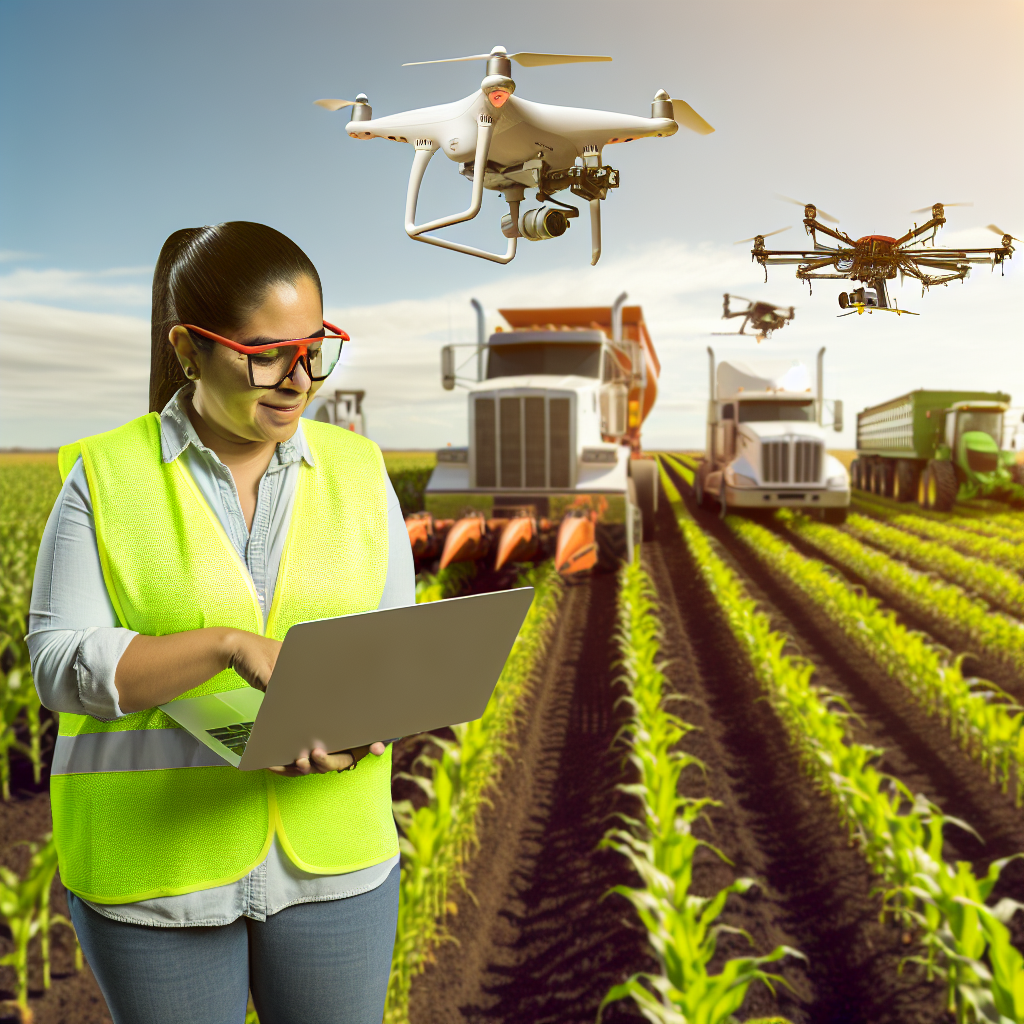
Impact of Blockchain on Traceability and Food Safety Standards
Enhancing Food Traceability
Blockchain technology significantly improves food traceability.
Each step in the supply chain records its transactions on a decentralized ledger.
This creates an immutable record of all product movements.
As a result, consumers can verify the origin of their food quickly.
This transparency builds trust between producers and consumers.
Strengthening Food Safety Standards
Blockchain enhances food safety by providing immediate access to data.
In the event of a contamination issue, companies can act swiftly.
They can trace the source of the problem in real-time.
This helps to minimize health risks associated with tainted food.
Facilitating Compliance with Regulations
Regulatory bodies require strict adherence to food safety standards.
Blockchain simplifies compliance tracking and reporting.
Companies maintain accurate records with minimal effort.
Such efficiency reduces the risk of costly penalties and recalls.
Improving Supply Chain Efficiency
Blockchain streamlines the agricultural supply chain considerably.
It reduces delays and errors associated with manual record-keeping.
This increased efficiency ultimately leads to cost savings.
Farmers and suppliers benefit from a more reliable process.
Encouraging Sustainable Practices
Blockchain promotes sustainable farming practices through transparency.
It tracks environmentally-friendly techniques adopted at every level.
Consumers increasingly favor products from responsible sources.
This demand can lead to a shift towards greener agricultural methods.
Real-World Applications of Blockchain in Agriculture
Several companies successfully implement blockchain in their operations.
For instance, FoodTrust provides transparency across the food supply chain.
Similarly, IBM’s Food Trust platform enhances food safety and efficiency.
These examples highlight blockchain’s potential in agriculture.
Delve into the Subject: Climate-Smart Agriculture Tools Mitigating Environmental Impact
Challenges and Limitations of Integrating Blockchain in Agriculture
High Implementation Costs
Integrating blockchain technology can require significant upfront investment.
Agricultural businesses may struggle with the costs of technology adoption.
This can be a barrier for small-scale farmers and producers.
Moreover, ongoing maintenance costs can add up.
These issues make it difficult for some to commit to blockchain solutions.
Lack of Technical Expertise
The agricultural sector often lacks sufficient technical training in blockchain technology.
Many farmers are unfamiliar with how blockchain operates.
Showcase Your Farming Business
Publish your professional farming services profile on our blog for a one-time fee of $200 and reach a dedicated audience of farmers and agribusiness owners.
Publish Your ProfileThis knowledge gap can hinder effective implementation.
Additionally, training programs can be both time-consuming and costly.
Without proper understanding, existing systems may remain unoptimized.
Regulatory and Compliance Challenges
Governments may not have established regulations surrounding blockchain in agriculture.
Compliance with agricultural standards can complicate integration efforts.
Farmers may face uncertainty concerning data privacy and security regulations.
This can discourage many from adopting blockchain solutions.
Furthermore, inconsistent regulations across regions can complicate matters even more.
Interoperability Issues
Blockchain systems need to work seamlessly with existing agricultural systems.
Lack of standardization across various platforms creates challenges.
When systems cannot communicate effectively, data silos may develop.
This compromises the transparency and efficiency blockchain technology promises.
Consequently, agricultural organizations may remain hesitant to integrate blockchain.
Resistance to Change
Established agricultural practices have been in place for decades.
Farmers may resist adopting new technologies like blockchain.
This reluctance can stem from fear of change and uncertainty about results.
Additionally, some stakeholders may prioritize short-term gains over long-term innovation.
Without broad buy-in, integrating blockchain may prove difficult.
Future Prospects: Innovations and Trends in Blockchain Applications for Agriculture
Enhancing Traceability
Blockchain technology greatly enhances traceability in agricultural supply chains.
This innovation allows consumers to know the origin of their food.
For instance, farmers can track their products from farm to table.
Companies like AgriDigital are implementing these solutions effectively.
In addition, this transparency fosters trust between consumers and producers.
Improving Efficiency
Blockchain can streamline operations in agricultural supply networks.
Smart contracts automate transactions, reducing delays and errors.
Furthermore, it minimizes the need for intermediaries in the supply chain.
Companies, such as Provenance, are successfully reducing costs using this technology.
Enhancing Sustainability
Blockchain fosters sustainable agricultural practices in multiple ways.
It tracks resource usage, helping farmers optimize their inputs.
This technology also provides data on environmental impacts of farming practices.
Consequently, farmers can make more informed decisions leading to sustainability.
Facilitating Access to Finance
Blockchain opens new avenues for funding in agriculture.
Farmers can leverage their produce as collateral for loans.
Platforms like CropTrust are facilitating these blockchain-based financing solutions.
This accessibility ensures that farmers have the necessary capital to grow their businesses.
Future Trends to Watch
Several trends are emerging in the blockchain and agriculture space.
- Integration of IoT devices with blockchain for real-time data tracking.
- Increased collaboration among stakeholders to utilize shared blockchain platforms.
- Development of blockchain educational programs for farmers and stakeholders.
- Focus on regulatory compliance and standards for blockchain implementation.
These innovations promise to reshape the agricultural landscape.
As a result, blockchain technology will play a crucial role in future agricultural practices.
Additional Resources
The innovative role of blockchain in agri-food systems: A literature …
Unveiling the Future: State of the Digital Agriculture Sector Report
Showcase Your Farming Business
Publish your professional farming services profile on our blog for a one-time fee of $200 and reach a dedicated audience of farmers and agribusiness owners.
Publish Your Profile
